A creative choice
An open letter to James Rhodes, pianist (in reply to his article).
James, on the off-chance you do read this (since I'm going to tweet you a link to it!) I don't know you at all, of course, and please forgive my direct way of addressing you here - it just feels more comfortable, and easy, and inspiring to write straightforwardly in the second person rather than making an abstract response into the void - but it's more a response to ideas I read between your lines rather than any specific commentary on your own life or experiences.
I’m like you. I have the same creative longing since childhood. I even have, reading between the lines if I may, a similar way of existing (tinged with darkness, hanging on by the fingernails, existentially troubled, grimly determined).
And, just like you, I put everything on hold for another life, for ten years. Between the ages of 21 and 31, I stopped writing and I stopped music. I moved to another country, I had children. It’s not that I sat there in stultifying domesticity – far from it. I did a PhD (and had a baby at the same time, and was still a full-time mother working on my thesis at night time) – I taught, I worked, then I founded and ran a little language school (and had another baby at the same time). I found a kind of happiness.
Your article sets out to persuade, to galvanise the reluctant artist, the ‘some-day’ writer, the procrastinating dreamer to lay aside their excuses, step off the conveyor belt of life and sacrifice the very self to the necessity of making art. I sincerely hope that your article will convert even one waverer who goes on to create something beautiful; I sincerely hope it reaches even a few people who might think twice or three times about their lost childhood dreams – yes, the way you write is affecting enough to change lives, I do think so. But there’s a certain glib ease in the answer you offer that I can’t let lie.
Don’t get me wrong. Your solution wasn’t ‘easy’. You suffered and gave up the very patterns of life you knew, at the price of your health; both physical and mental. You lived it in black and white, had the strength of character to effect the change yourself, whatever the cost; and you embraced that entirely, rejecting wholesale one set of values for another. You came out the other side, successful, creative, impassioned and articulate about the rite of passage the suffering had entailed for you.
I’m full of admiration for this, and full of respect for your journey. But let me tell you my perspective; one amongst many, of course.
I have always wanted to be a writer. I used to tell people I was going to be a writer. It’s how I justified to myself my move abroad aged 21 (I could write anywhere). But I didn’t.
By the time I reached 30 I had two young children. To change my own life, to sacrifice my own life, would have entailed sacrificing theirs, too. Then, my marriage ended when I was 31 in stunningly traumatic and bizarre circumstances which meant that I moved back to the UK suddenly, and from one day to the next became a single mother on state benefits. This was two years ago – ever since, I have been gradually working my way off benefits with the result that I am now almost completely independent. This involves working on evenings when the children are in bed. And in the last month or two, with life starting, gradually, to settle and with my own old sense of self and creative drive starting once again to reawaken and clamour for attention, I am finally, finally, ready to start writing.
While your account of your creative journey and drive is compelling, and perhaps inspirational, I can’t help wondering whether your own sentence belies your argument. You say, “when the pain of not doing it got greater than the imagined pain of doing it”, and that’s how you got the guts to go for it. This immediately struck me, as it’s what I hear everywhere: Holst, “Never compose anything unless the not composing of it becomes a positive nuisance to you”; Rilke, “This above all—ask yourself in the stillest hour of your night: must I write? Delve into yourself for a deep answer. And if this should be affirmative, if you may meet this earnest question with a strong and simple, "I must," then build your life according to this necessity; your life even into its most indifferent and slightest hour must be a sign of this urge and a testimony to it.” There’s a consensus among artists, yourself included, that art truly happens when it must.
Rilke of course, just like you, is offering advice to the would-be poet. But it does strike me that if you must, then you will, simply because to do otherwise is not possible. Wonderful though I’ve found your article, I don’t need to read it. I know it, and I can source this advice internally without needing it from you, because the necessity is there. I am starting to write, because I can no longer not write, because the not-writing is making me suffer. It’s the creative drive in and of itself which gives birth to creativity, and I’m not convinced of the extent to which someone who is in thrall to apathy or procrastination can set out to acquire such a drive, however eloquent your exhortation to art-making.
They don’t need to work out how to use their four hours per day of free time; they’ve already chosen how to use it. They can’t be saved; you can’t save them from Katie Price and junk TV. (The best thing you can do, perhaps, is continue to play the piano beautifully. Perhaps it will filter gradually through to the collective consciousness of the nation, the more mainstream you become and the more your music is heard.)
Why would someone, for whom something is a deep passion, not pursue it? The Onion article that your Twitter correspondent flagged up frightens me in its dark humour. I didn't laugh. If I’m frank, I don’t know how to read the humour or what the author’s point, ultimately, is. There seem to be several possible levels of irony. It gives an account of a fundamentally empty life prey to other pressures, and is not really funny at all. Maybe I should lighten up, but it's harder than it looks.
Your litany of life clichés: mortgage, the angry ex, emailing clients at night, these are the trappings of a life of responsibility which we choose to take on. The angry ex has to be dealt with because of the repercussions of not doing so. A mortgage is preferable to a rent if you are looking to the longer-term future, and if you value the freedom to own your home rather than haemorrhage your cash to a landlord. You may have to email clients at night if you are a single parent, you have no babysitting, and you choose to spend your day with your three year old or working your other job. It’s not necessarily either surrendering to, or being beaten into submission by. Sometimes it’s a choice. Even an artist’s choice.
The fact is that when we take on life’s responsibilities, we choose to do so in knowledge of the consequences. Your friend Benedict Cumberbatch, childless, once answered a question about his greatest achievement so far by saying he wished he could say it was children – he’s intuited the weighting, and the creativity, and the significance, and the choice. I made a creative sacrifice: back then when I gave birth to my babies, two years ago when I embarked upon single parenthood with them under my wing, and now as I gradually and painstakingly shape my day to day life to make room, at least, for those needs of mine that it is within my sole power to fulfil. (That’s the best I can do for myself.)
It’s all about choices, in the end. We live with the choices we make, and we can always un-choose them. You proved that. Your article might give people hope to un-choose what they’ve chosen.
So BC chose not to go to Cambridge? (I was interested to read this, as I’ve heard this exact same thing from several intelligent men in their 30s that I’ve met over the last few years). Well, I chose to go. And I was extremely unhappy. I met my ex-husband (outside the university) and ran away from everything, including the UK, to marry him. (Finished my degree first). Do I regret going to Cambridge? Yes in very many ways. People of my age, both in the limelight like you and BC and out of it, who have carved amazing creative careers and have a gaggle of interesting, intelligent, creative friends, make me jealous. That’s who I could have been. That’s what I could have done if I'd been happier at university; if I'd gone elsewhere (that's a secret pondering of mine - would I have been happier elsewhere?). I follow your careers, the two of you and people like you, without believing in celebrity for a moment (I have no interest in autographs or even direct interaction – I am not writing, for a second, in order that you reply, for instance) but because you resemble me, and it’s poignant and interesting to me to be able to witness your lives unfolding, differently from mine.
I blame Cambridge for much of what proceeded to happen to me. But then again, it has opened doors for me all my life. I can’t bring myself to regret it wholeheartedly. And every time I felt miserable there, and sometimes I was darkly, desperately so, I reminded myself that I was free to leave any time. I was choosing to remain. I could have run away any time. This has kept me sane all my life; this and the fact that I know that when it is time to choose to run away, however hard that choice is to make, I can do it. When the life I had built for myself with children and a home abroad was abruptly destroyed, I chose to start over again and make a new one, and I left my former life of ten years behind. I was capable of it, I survived it, and I came out the other side, alone, to make something new.
You chose to go into the City, and you learned about life there. You learned that it was “chasing something that never existed in the first place”; and how would you know it wasn’t there until you’d failed to find it? You needed to do it so that you could come out how you are now: a pianist. If you had never gone into the City, you might never have become a pianist. It was your rite of passage. It was your choice, and whether you regret it or not, it informed the values you hold so passionately today. You needed to learn that for yourself, and nobody could teach you it.
I may have made mistakes and chosen wrongly, but I did what I needed to do at the time. And above all, I chose the creative act of parenthood and I continue to choose it. I want my son to have his own version of your ten year old moment, lying in bed listening to the joy of Rachmaninov or reading a stunning novel or sonnet, or perhaps having a revelation about science or medicine that will inspire his adulthood; a moment he will remember all his life. And somehow, quietly, as his parent, behind the scenes, he may never really realise (until he has children of his own) that I have moved heaven and earth to give him a safe bed, a rich culture, creative hopes, space to dream, and a bright future. If that means sacrificing parts of myself, temporarily or permanently; if that means partial suicide; then that is my creative choice.
In particular, it seems, it’s a woman’s choice. Why have there been no or few great female artists or composers in history? Perhaps in the past, education, training was literally barred to women (both painting and music requiring access to technical tuition and equipment. This is less true for writing; hence perhaps Brontes and so on). But today, the choice of sacrificing ourselves in favour of our children’s lives is a creative choice. I imagine there are thousands of women artists and composers and writers, even today across the world, whose work we will never see or hear because they gifted their creativity upon their families.
Where does this leave me? Because, yes, I plan to be seen and heard. I plan to write, and write well - to have my cake and eat it. I’ve made no conscious revolutionary decision. I’ve committed to no writing class (I can’t get the babysitting to go out every week). I will not hand in two pages to strangers once a week (if I needed that discipline it would not happen) – so I am answerable only to myself. I do not choose to leave the children and disappear to write for days, weeks on end. I do not choose to rehearse for hours, travel the world to perform, even if it means I can never pursue music. I have made a small space for my creativity, the space it is allowed, the space I allow it to have. I have shaped, prodded, planned, calmly focused myself and my life little by little to get myself to the place where I can write. And aware of the cliff edge – once I start writing, it’ll be a freefall – I am careful. I’m plotting, thinking, preparing myself, and finally sidling cautiously up to my writing before I allow myself to sit down and begin.
I am poised now, aged 33, a single parent with two happy children, a job, a home, and increasingly a sense of a bright future for the three of us. My dreams have been waiting for me all this time in the periphery of my vision, and now I am finally ready to turn and look them full in the face.
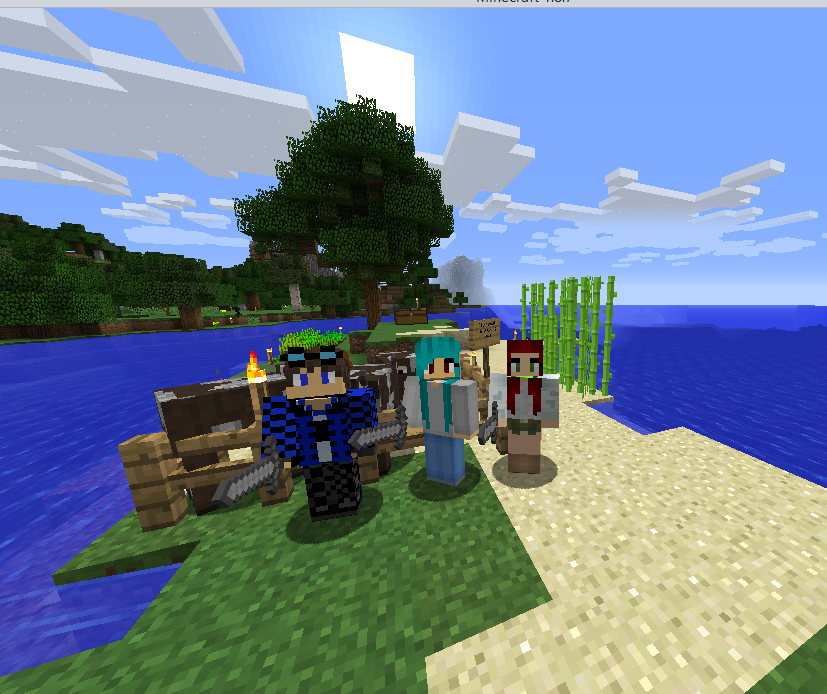
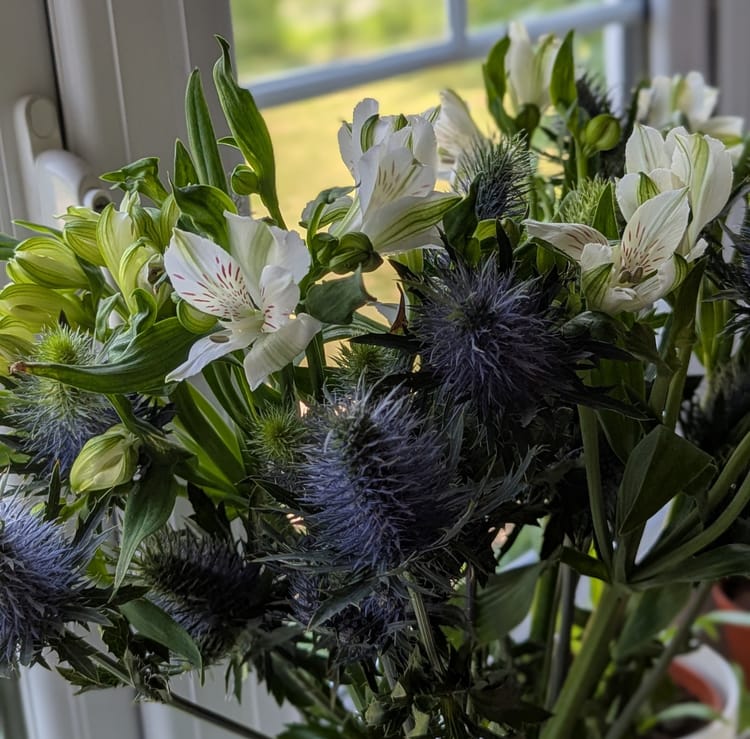
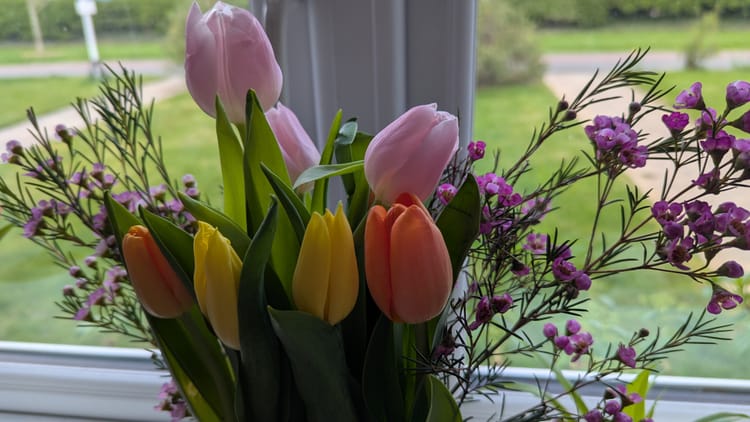
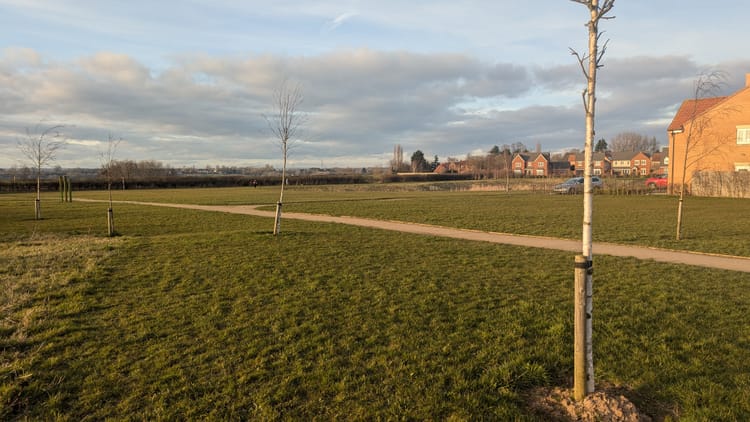
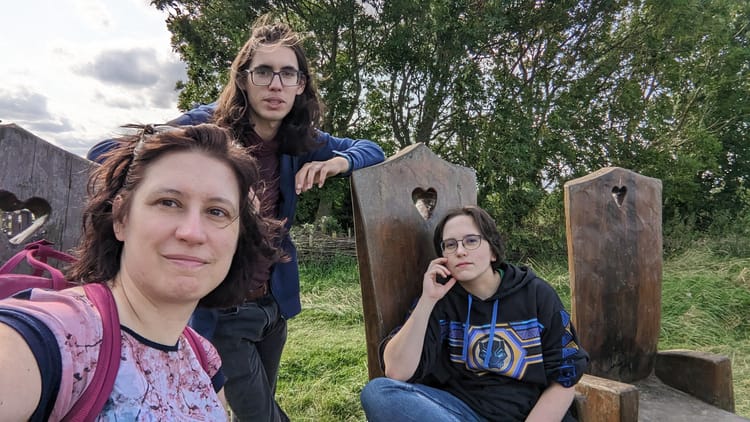
Member discussion